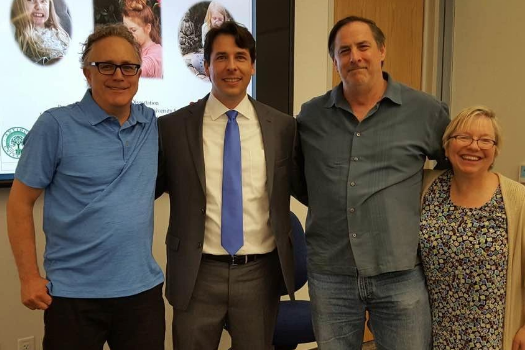Please join The Writers’ Exchange in congratulating Jedidiah Savard in the successful completion of his dissertation:
Reducing Adolescent Anger and Aggression with Biofeedback: A Mixed-Methods Study
My dissertation research focused on evaluating the efficacy of pairing affect recognition with daily school-based heart-rate monitoring in the pursuit of diminishing and regulating the frequency of anger and aggression in special-education adolescents who have spent most of their lives unsuccessfully treated using a variety of traditional therapeutic modalities.
What advice would you give to others writing a dissertation?
Patience, persistence, and self-guidance are very important attributes of a successful dissertation researcher and writer.
A dissertation is many things, and possibly most important, a dissertation is an opportunity to draw from all of your education, training, experience, and natural talents, to set aside the distractions of daily living, and to produce a substantial, in-depth, and long-term research project.
My best advice for those working on a dissertation is to recognize the distractions in your life, plan 8 to 10 hours of distraction-free time once or twice a week, learn to motivate yourself, and work steadily on your project.
What are your next steps in your academic/professional career?
My next step along my path of professional development as a clinical psychologist is to continue building my professional skills and competence. I feel it is important for me to build-upon and continue learning, growing, and developing after internship. I have chosen to work as a post-doctoral trainee focusing on refining my comprehensive evaluation skills with child and adolescent clients.
Jedidiah Savard, PsyD, Antioch University Seattle
Jedidiah Savard pictured with his committee: Mark C. Russell, Ph.D. (Chairperson), Steve E. Curtis, Ph.D., and Elise Murrowchick, Ph.D.

